
Bruce Bower
Behavioral Sciences Writer, Science News
Bruce Bower has written about the behavioral sciences since 1984. He often writes about psychology, anthropology, archaeology and mental health issues. Bruce has a master's degree in psychology from Pepperdine University and a master's degree in journalism from the University of Missouri. Following an internship at Science News in 1981, he worked as a reporter at Psychiatric News, a publication of the American Psychiatric Association, until joining Science News as a staff writer. In 1996, the American Psychological Association appointed Bruce a Science Writer Fellow, with a grant to visit psychological scientists of his own choosing. Early stints as an aide in a day school for children and teenagers with severe psychological problems and as a counselor in a drug diversion center provided Bruce with a surprisingly good background for a career in science journalism.

All Stories by Bruce Bower
-
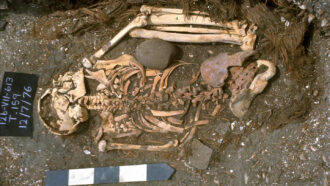 Archaeology
ArchaeologySkeletons point to world’s oldest known shark attacks
The newfound remains came from people who had lived thousands of years ago in Peru and Japan, half a world apart.
-
 Archaeology
ArchaeologyFossils unearthed in Israel reveal possible new human ancestor
They come from a previously unknown Stone Age group that may represent a complex mashup of early members of our genus Homo.
-
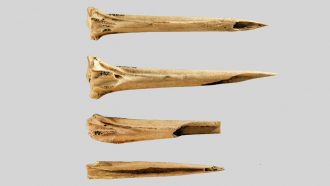 Archaeology
ArchaeologyTennessee site yields oldest known American tattoo tools
Native Americans may have used sharpened turkey leg bones as tattoo needles between 5,520 and 3,620 years ago.
-
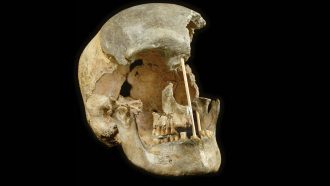 Genetics
GeneticsEurope’s ancient humans often hooked up with Neandertals
DNA from ancient bones shows humans and Neandertals were regularly mixing genes by about 45,000 years ago.
-
 Archaeology
ArchaeologyHarsh Ice Age winters may have helped turn wolves into dogs
In the Ice Age, Arctic hunters may have turned to some game for their fatty bones. Much of those animals’ meat might have been left to domesticate dogs.
-
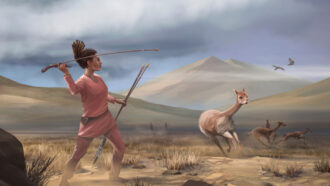 Archaeology
ArchaeologyThis prehistoric woman from Peru hunted big game
Women in the Americas speared large prey as early as 9,000 years ago, new archaeological evidence suggests.
-
 Archaeology
ArchaeologyStonehenge enhanced voices and music within the stone ring
Scientists built a 'Stonehenge Lego' model in a sound chamber to study how sound would have behaved in the ancient stone circle.
-
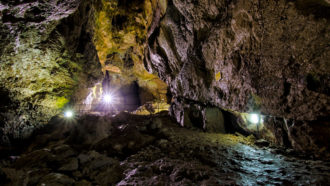 Archaeology
ArchaeologyThis cave hosted the oldest known human remains in Europe
Bone fragments, tools and other finds in Bulgaria suggest that Homo sapiens moved rapidly into Eurasia as early as 46,000 years ago.
-
 Humans
HumansSkeletons hint that ancient societies had women warriors
Some women in North American hunter-gatherer societies and Mongolian herding groups may have been warriors.
-
 Archaeology
ArchaeologyAncient Egyptian mummy tattoos come to light
A range of markings discovered on female mummies are challenging ideas about tattoo traditions in ancient Egypt.
-
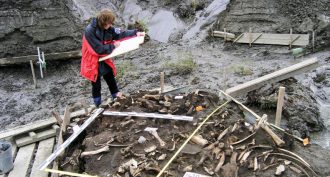 Humans
HumansDNA reveals clues to the Siberian ancestors of the first Americans
Researchers discovered a previously unknown population of Ice Age people who crossed the Asia-North America land bridge.
-
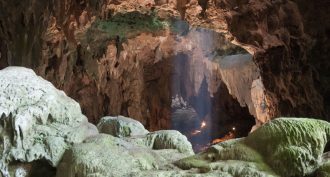 Archaeology
ArchaeologyFossils from a Philippine cave may come from a new human-like species
Ancient fossils from a Philippine cave may come from a new human-like species, which scientists have dubbed Homo luzonensis.